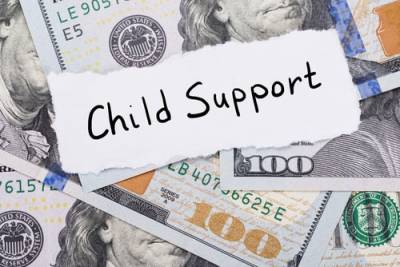Recent Blog Posts
Avoiding Burnout Is Key to Retaining Your Professional License
 Provider burnout is real, and it can have serious implications for your career. Many people who are at risk of losing their professional license are also burned out. Remaining motivated in your job is crucial to your overall success as well as keeping you from facing your profession’s governing body.
Provider burnout is real, and it can have serious implications for your career. Many people who are at risk of losing their professional license are also burned out. Remaining motivated in your job is crucial to your overall success as well as keeping you from facing your profession’s governing body.
Signs of Burnout
- Every day at work is a bad day;
- You are tired all the time;
- Your work becomes either overwhelming or very dull;
- You feel that your work goes unnoticed; and
- Caring about your job or home life seems like a waste of time.
How Can Burnout Affect Your Job
Burnout can lead to the following issues related to your career and license:
- Increased provider errors;
- Reduced empathy for patients;
- Decreased patient satisfaction;
- Reduction in patient compliance with treatment; and
How Failing to Pay Child Support Can Threaten Your Professional License
 If you are part of a profession that requires a license and you have a child support obligation, you should be aware that failure to pay child support could mean that you will lose your professional license. Your professional license may be in jeopardy after only 30 days from when your child support payment becomes delinquent.
If you are part of a profession that requires a license and you have a child support obligation, you should be aware that failure to pay child support could mean that you will lose your professional license. Your professional license may be in jeopardy after only 30 days from when your child support payment becomes delinquent.
This only applies to court-ordered or court-approved child support payments. Informal agreements cannot be used as a basis for professional license suspension or revocation.
Other Licenses Could Also Be Revoked
Illinois also has the right to revoke other licenses for parents in child support arrears. Hunting, fishing and driver’s licenses belonging to an owing parent could be canceled or not renewed. While some may wish to let a hunting or fishing license expire, payor parents are less likely to let professional licenses or driver’s licenses expire.
Why Is This Program in Place?
Illinois Nursing Requirements for International Applicants
 Studying to become a nurse at the international level can prove to be a challenging yet rewarding experience. Learning about different nursing policies from all around the world can be a very interesting way to learn about how different cultures practice nursing. In Illinois, there are different licensing requirements for international applicants who wish to pursue their nursing license.
Studying to become a nurse at the international level can prove to be a challenging yet rewarding experience. Learning about different nursing policies from all around the world can be a very interesting way to learn about how different cultures practice nursing. In Illinois, there are different licensing requirements for international applicants who wish to pursue their nursing license.
The Process of Obtaining the Nursing License for International Applicants
There are several requirements for the international applicant to successfully obtain his or her nursing license. The applicant must provide proof of licensure in the country from which he or she has received education for the license.
The international applicant must also show proof that he or she has passed the National Council Licensure Examination (NCLEX). He or she must show proof of education equivalency and may choose from one of the following:
Difference between an RN and a BSN in Illinois
 Obtaining your nursing education can be a very exciting accomplishment. All of the time that is spent studying and in clinicals will pay off in the end. When studying for your nursing license, there are different requirements for each type of nurse. The two most common job types in the nursing profession include registered nurses (RN’s) and nurses with their Bachelors of Science in Nursing (BSN’s), and there are certain requirements for each job type.
Obtaining your nursing education can be a very exciting accomplishment. All of the time that is spent studying and in clinicals will pay off in the end. When studying for your nursing license, there are different requirements for each type of nurse. The two most common job types in the nursing profession include registered nurses (RN’s) and nurses with their Bachelors of Science in Nursing (BSN’s), and there are certain requirements for each job type.
RN Requirements
If a nursing license applicant has become a registered nurse, he or she has passed the National Council Licensure Examination or the NCLEX. To take the NCLEX, the nursing license applicant must have earned either the Associates Degree in Nursing or a Bachelors of Science in Nursing.
To obtain the Associates Degree in Nursing, the license applicant must complete a 21-month program at a college that focuses mainly on careers. If the license applicant becomes an RN, he or she does not have to become a BSN.
Visiting Physician Permits in the State of Illinois
 Working toward your physician’s license takes a lot of time and effort. There is a lot of schooling and experience required before ever obtaining the physician’s license. However, there are different requirements to become a visiting physician in the state of Illinois, and the experience is often different than becoming a fully licensed physician in the state.
Working toward your physician’s license takes a lot of time and effort. There is a lot of schooling and experience required before ever obtaining the physician’s license. However, there are different requirements to become a visiting physician in the state of Illinois, and the experience is often different than becoming a fully licensed physician in the state.
What Is a Visiting Physician?
A visiting physician is anyone who is not licensed in Illinois to practice medicine, but who has been invited or appointed to study a certain medical, osteopathic, chiropractic or clinical subject or technique in a medical, osteopathic, or chiropractic school or hospital in Illinois. The visiting physician must hold a visiting physician permit issued by the Illinois Department of Financial and Professional Regulation, Division of Professional Regulation.
Impaired Nursing Licensees in the State of Illinois
 Studying to become a nurse takes a lot of time and effort. There are many hours spent working toward the Bachelor’s degree in Nursing. After the degree has been received, then the graduate will need to apply for a nursing license to be able to practice in his or her chosen field. If the licensee is impaired for any reason, then there are steps that need to be taken to settle the situation.
Studying to become a nurse takes a lot of time and effort. There are many hours spent working toward the Bachelor’s degree in Nursing. After the degree has been received, then the graduate will need to apply for a nursing license to be able to practice in his or her chosen field. If the licensee is impaired for any reason, then there are steps that need to be taken to settle the situation.
Mandatory Reporting for the Impaired Nursing Licensee
If a licensed nurse is impaired on the job because of the use of alcohol or drugs, or if he or she unlawfully possesses, uses, or distributes drugs while on the job, then the institution that has knowledge of these actions may report the licensed nurse to the Illinois Department of Financial and Professional Regulation, Division of Professional Regulation. However, if the licensed nurse agrees to participate in a course of remedial professional counseling or substance abuse treatment, he or she may not need to be reported.
What Is the Role of an Illinois Dental Hygienist?
 Dental school is a rigorous program that comes with many hours of studying and testing. There are some requirements to be a dental hygienist, and the duties of a dental hygienist are not the same as a dentist. Dental hygienists often work closely with the dentist and other personnel, but their duties as more restricted.
Dental school is a rigorous program that comes with many hours of studying and testing. There are some requirements to be a dental hygienist, and the duties of a dental hygienist are not the same as a dentist. Dental hygienists often work closely with the dentist and other personnel, but their duties as more restricted.
What Tasks Can a Dental Hygienist Perform?
In Illinois, a dental hygienist can perform the procedures of dental hygiene, dental health education functions, and all other procedures that may be performed by a trained dental assistant. A dental hygienist may also record observed case histories and oral conditions.
A dental hygienist may also administer and monitor nitrous oxide under the supervision of a dentist. He or she may also assist in providing moderate sedation, deep sedation, local anesthesia, and general anesthesia, as long as the dental hygienist is under the dentist’s supervision.
How to Apply for Illinois Physician Assistant Licensure
 The medical field comes with many different challenges, as any occupation within this field is responsible for the health and well-being of patients who are treated. There are many different occupations in the medical field, and many individuals studying medicine begin their careers by becoming a physician assistant. Like physicians and many other medical occupations, there are licensing requirements for physician assistants, and it is very important to familiarize yourself with the requirements so there are no discrepancies in your application for licensure.
The medical field comes with many different challenges, as any occupation within this field is responsible for the health and well-being of patients who are treated. There are many different occupations in the medical field, and many individuals studying medicine begin their careers by becoming a physician assistant. Like physicians and many other medical occupations, there are licensing requirements for physician assistants, and it is very important to familiarize yourself with the requirements so there are no discrepancies in your application for licensure.
How Are Physician Assistants Important in Healthcare?
A physician assistant is a certified and state-licensed medical professional, and is very important in the medical field, as they have undergone extensive training and have passed an examination for licensure and certification. Like physicians, the physician assistants can also diagnose, treat, and prescribe medication. As physician assistants are very high in demand, the most successful healthcare facilities have relied on physician assistants for the success. From the years 2011 to 2014, the demand for physician assistants had increased by more than 300 percent.
Pharmacy License Requirements for International Applicants
 Working toward the pharmacy license takes much time and effort. For domestic applicants, meaning those who have obtained education for the pharmacy license in the United States, the requirements are different from those who have obtained education for the pharmacy license internationally. There are tests that international applicants may have to take to determine their status of qualification for the pharmacy license.
Working toward the pharmacy license takes much time and effort. For domestic applicants, meaning those who have obtained education for the pharmacy license in the United States, the requirements are different from those who have obtained education for the pharmacy license internationally. There are tests that international applicants may have to take to determine their status of qualification for the pharmacy license.
The Application Process for International Applicants
Pharmacy license applicants who have graduated from a professional degree program from outside the United States or its territories should submit proof of a Foreign Pharmacy Graduate Examination Committee Certificate, or FPGEC. Also, the applicant needs to successfully pass the preliminary diagnostic examination, called the Foreign Pharmacy Graduate Equivalency Program, which determines the equivalence of education to approved programs.
How Can a Psychologist Lose His or Her License?
 Earning a psychology license takes a lot of work. The licensee has to take many classes on different aspects of psychology, depending on his or her chosen field. As there are many different career paths for an aspiring psychologist, the educational requirements are relatively similar. The licensee must obtain his or her Bachelor’s degree, as well as a Master’s, depending on the type of career he or she chooses to pursue. However, maintaining the psychologist license is not necessarily permanent, as there are ways for the licensee to lose his or her psychologist license.
Earning a psychology license takes a lot of work. The licensee has to take many classes on different aspects of psychology, depending on his or her chosen field. As there are many different career paths for an aspiring psychologist, the educational requirements are relatively similar. The licensee must obtain his or her Bachelor’s degree, as well as a Master’s, depending on the type of career he or she chooses to pursue. However, maintaining the psychologist license is not necessarily permanent, as there are ways for the licensee to lose his or her psychologist license.
Examples of Psychologist License Misconduct
There are many reasons why a licensee may lose his or her psychologist license. If there is any finding of unethical, unauthorized, and unprofessional conduct, then the Illinois Department of Financial and Professional Regulation - Division of Professional Regulation has the right to suspend or revoke a psychologist license, refuse to issue or renew a license, or take other forms of disciplinary action if necessary









